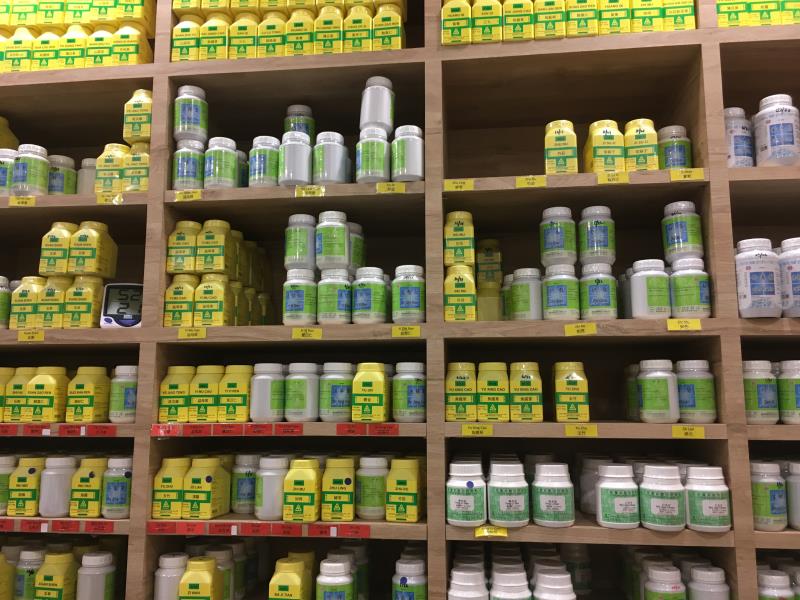 Herbal medicines prescribed are formulated and standardized according to strict quality control standards by the T&CM unit dispensary.
Herbal medicines prescribed are formulated and standardized according to strict quality control standards by the T&CM unit dispensary.Traditional Chinese Medication (TCM) may prove to be a valuable adjunct therapy for attention-deficit/hyperactivity disorder (ADHD) in children, according to a recent Singapore study.
“This study suggests that TCM is relatively safe and has potential therapeutic effects in a group of children with ADHD. However, the findings could be subjected to placebo effects and reporting biases from physicians, participants, as well as their respective parents,” said researchers.
Seventy-nine children (mean age, 9.34±1.65 years; 81.0 percent male) received a granulated TCM herbal formulation twice-a-day for 3 months. Mean baseline score in the ADHD-rating scale IV (ADHD-RS-IV) was 32.05±1.41, which dropped significantly to 23.66±1.46 after 3 months (difference, 8.39, 95 percent confidence interval [CI], 5.83–10.95; p<0.001), and then to 22.65±1.46 after 6 months (difference, 9.40, 95 percent CI, 6.82–11.98; p<0.001). [J Altern Complement Med 2020;doi:10.1089/acm.2020.0009]
The same was true for the individual ADHD-RS-IV domains of inattention and hyperactivity/impulsivity, whose 3-month change values were 4.44 and 3.95, respectively (p<0.001 for both).
Moreover, pairwise comparisons with Bonferroni corrections found that baseline scores differed significantly from the 3-month and 6-month outcomes, while scores in the two latter time points were statistically similar (p=1.00).
Likewise, total scores in the Child Behaviour Checklist (CBCL) decreased significantly from baseline to month 3 (difference, 14.59, 95 percent CI, 9.57–19.61; p<0.001) and month 6 (difference, 16.49, 95 percent CI, 11.41–21.56; p<0.001). This was consistent across almost all domains, except for 3-month scores in withdrawal.
Outcomes in the Children’s Global Assessment Scale (CGAS) and Clinical Global Impression-Severity (CGI-S) also significantly improved after 3 and 6 months. In all cases, scores during the two follow-up time points were comparable.
These improvements then translated to positive feedback from parents. On the Parental Satisfaction Questionnaire, 95.83 percent of parents rated the TCM intervention as moderate, good or very good. In contrast, only 4.17 percent thought that the intervention was poor or very poor. The figures slightly evened out by month 6, though the huge majority still reported being at least moderately satisfied with TCM.
“The general reduction of ADHD symptoms and related psychopathology, improvements in functioning accompanied by the absence of side effects among participants suggest that the TCM formula has potential therapeutic benefits and is safe for consumption among children with ADHD,” the researchers said.
In the present study, the standardized formula “Mind-anchoring Granules” was used as developed by the Nanjiang Chinese Medicine University of China, approved as a Chinese Proprietary Medicine by the Health Sciences Authority of Singapore. It included the following raw herbs: Poriacocos, Rhizoma Acori Tatarinowii, Alpiniaeoxyphyllae Fructus, Polygalae Radix, Glycyrrhizae Radix et Rhizome, Radix Codonopsis, Triticum Aestivum and Fructus Jujubae.
The researchers cautioned that “the findings could be subjected to placebo effects and reporting biases from physicians, participants, as well as their respective parents. Future double-blind RCTs should be conducted on this particular TCM formula to examine its efficacy.”